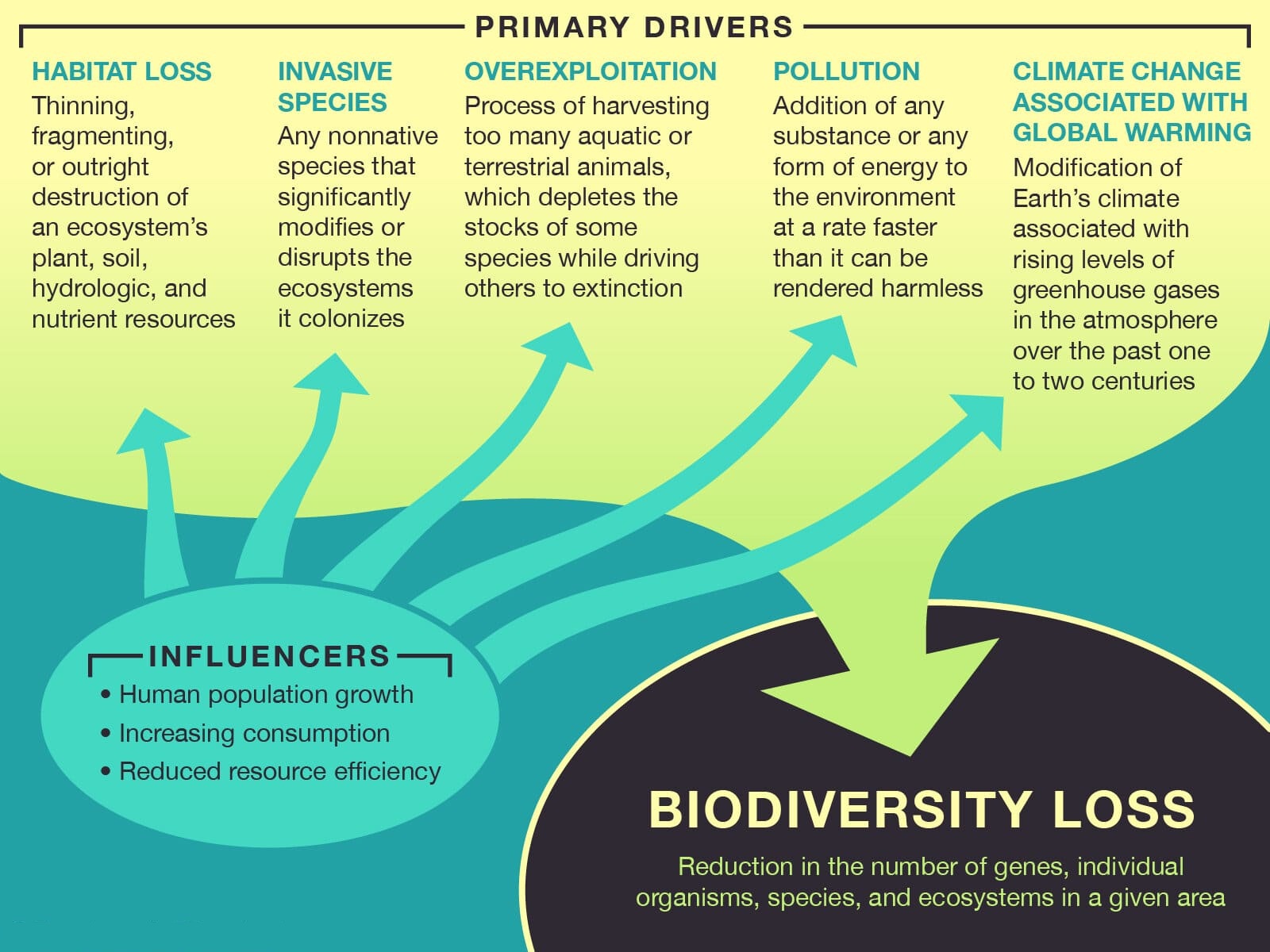-
Q. The present-day food system is one of the main drivers of deforestation and biodiversity loss. Examine. (250 words)
29 Jan, 2020 GS Paper 3 Bio-diversity & EnvironmentApproach
- Introduce the problem of Deforestation and Biodiversity Loss by giving some facts.
- Examine how food system is related with the above problem.
- Give Conclusion.
Introduction
- Forests cover about 30% of the world’s land area, but they are disappearing at an alarming rate. According to the World Bank, between 1990 and 2016, the world lost 502,000 square miles (1.3 million square kilometers) of forest—an area larger than South Africa.
- Biodiversity loss means a decrease in biodiversity within a species, an ecosystem, a given geographic area, or Earth as a whole. Up to 28,000 species are expected to become extinct by the next quarter of the century due to deforestation.
Body
Food system as the Driver of Deforestation and Biodiversity loss:
- Agriculture has historically been the biggest driver of deforestation, responsible for about 80% of deforestation in the key tropical regions of the world (Africa, Latin America and subtropical Asia). The main driver of deforestation in Latin America has been commercial agriculture, but in Africa and subtropical Asia, even subsistence farming has played a significant role.
- Agricultural production is the greatest threat for the species classed as threatened by the International Union for Conservation of Nature.
- Increased demand for food, and in particular for resource-intensive food such as meat leads to significant and continued biodiversity losses. This primarily arises from agricultural expansion into new areas to grow crops (often to feed livestock), from the creation of new pasture lands, and encroachment on and fragmentation of ecosystems.
- For marine ecosystems, the most important direct driver of change in the past 50 years, in the aggregate, has been fishing. Fishing is the major direct anthropogenic force affecting the structure, function, and biodiversity of the oceans.
- Clearing of natural vegetation for agriculture promotes habitat loss of species, thus a driver of Biodiversity loss.
- Overexploitation remains a serious threat to many species and populations. Among the most commonly overexploited species or groups of species are marine fish and invertebrates, trees, and animals hunted for meat.
Primary Drivers of Biodiversity Loss (Additional info)
Forward
- Reducing the consumption of animal products : It would reduce the land and water use required for growing feed for livestock, thereby potentially alleviating water stress and sparing land for natural habitats.
- The Intergovernmental Panel on Climate Change (IPCC) Special Report on Climate Change and Land (SRCCL) highlights that vegan and vegetarian diets have a large climate-mitigation potential and show no negative impacts across other challenges associated with food production—such as stopping land degradation and ensuring food security.
- Reduce Food Loss and Waste: Reducing food loss and waste could decrease food production as well as its environmental impacts.
- Sustainable Intensification of Agriculture: Increasing land productivity (e.g., closing yield gaps) with minimal additional environmental impacts can help reduce current and future damages to biodiversity and water.
- Closing yield gaps means that less land will be needed for producing the same amount of agricultural products, thereby reducing deforestation and degradation, which will alleviate pressures on biodiversity.
Conclusion
By 2050, almost 10 billion people will need to access an adequate quality and quantity of food. This must be done while minimizing the environmental damage caused by the food system.
To get PDF version, Please click on "Print PDF" button.
Print PDF





